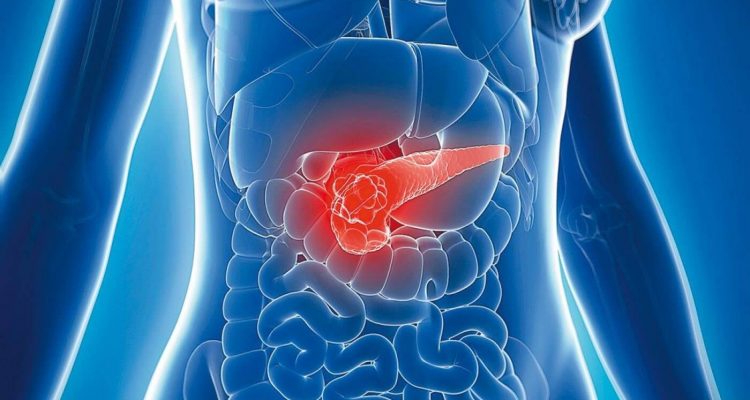
Six changes in the work of the body, which can manifest pancreatic cancer
0
Inexplicable loss of appetite, stool floating in water, blood clots, the development of diabetes without existing prerequisites are named by the doctor among those changes in the work of the body that can manifest themselves in pancreatic cancer.
The pancreas is a small organ located behind the stomach, which produces insulin and regulates the production of hormones that maintain glucose (blood sugar) levels. A feature of pancreatic cancer is its aggressive development.
“It has a high probability of spreading or metastasizing to other organs of the body. The five-year survival rate of patients with this diagnosis is only 9 percent,” Prevention magazine quotes Cleveland Clinic oncologist Dr. Neil Woody.
The scientist emphasized that early detection of the disease is the key to human survival and called those changes in the work of the body, with which it is necessary to visit a medical institution and be examined.
Sudden onset of diabetes.According to Dr. Woody, in some cases, diabetes can occur in people who are at risk – for example, they do not have a family history and are overweight, they eat properly. Such onset of diabetes is a very serious reason to check the condition of the pancreas, the expert emphasized.
Pain in the abdomen. The pancreas is located next to a bundle of blood vessels and nerves – the solar plexus. A tumor in it can cause nerve irritation and associated pain. Such pain is felt as if it girdles the body from the epigastric region (under the sternum) to the back.
Unexplained blood clots. Patients with this disease are especially prone to blood coagulation disorders and the formation of blood clots, says the specialist. The exact cause of this change in how the body works is unknown, but it is thought that cancer cells reduce the amount of proteins it uses to prevent blood clots from forming.
Diarrhea and loose stools.In addition to insulin, the pancreas also produces enzymes that help break down fat. A tumor growing in it also occurs and blocks the production of enzymes, which also affects the body's work on fat digestion. The latter is not absorbed, and as a result, a person's stool becomes greasy, acquires a new, extremely unpleasant smell, floats, not sinks in water, and can be excreted several times a day if fatty food is consumed.
Yellowing of the skin . The pancreas is located close to the liver, which produces bile. If the tumor prevents the outflow of bile from the bile ducts, people may develop an increased level of bilirubin in the body, which leads to yellowing of the skin and whites of the eyes. Itchy skin may also develop and the stool becomes very light.
Unexplained weight loss and changes in eating habits. If you experience loss of appetite or feel full after eating very little, it can also be a sign of pancreatic cancer, states the oncologist. The gland is adjacent to the small intestine and a growing tumor can contribute to the fact that food does not enter the small intestine as quickly as before.









Leave a Reply